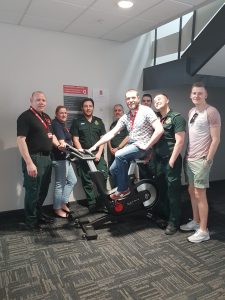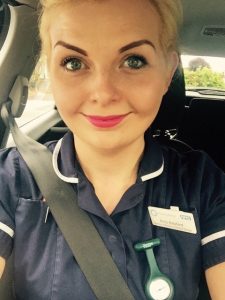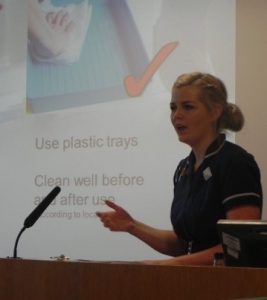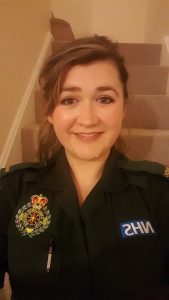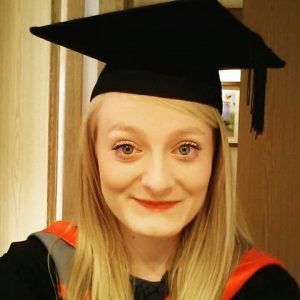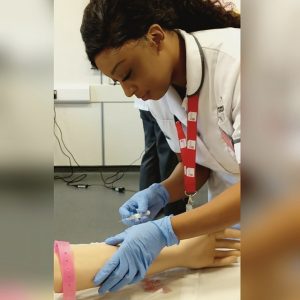I am finally in my last week I Ghana, time seems to have flown by now that I am days away from going home.
My time on the children’s ward was a good experience, I managed to see a lot and learn how nursing care is carried out.
We are able to do spoke placements while we are here, and one that is popular with other students is the mother and baby HIV clinic which is on a Wednesday, I have been to this clinic twice now and plan to go back tomorrow as I have really enjoyed my experience there. All patients attending the clinic has to have their height and weight checked and also blood pressure, as soon as I arrived there on my first day they put me in a room and I was to do the blood pressures, this is always done manually and I can only describe it as a conveyor belt of patients coming to have their blood pressure checked and written down on a scrap peice of cardboard. This has helped me a great deal with my manual blood pressure skills and I feel a lot more confident now. The mother’s and babies sit in the waiting area and a nurse speaks to them about HIV and the medication required, nutrition and family planning. They were very kind and spoke in English so I could understand, the relationship between the nurse and the mother’s was incredible, they had a bond and it was kept quite light hearted even though it is a serious subject. They then go to collect their medication and some babies have the blood spot test done to see if they have HIV from their mothers. They also carry out counselling sessions to all patients who come to the clinic, they are very empowering nurses which was a joy to see and experience. I am looking forward to going back this week and learning more.
I did get the opportunity to visit the mourge at the hospital, I have not been to visit one before so I had not idea what to expect, four of us went after our shift and we all took face masks, the staff at the mourge were very accommodating, it is as if they enjoy showing people around their place of work. I won’t go into too much detail as I am aware it isn’t a nice subject but nothing could have prepared me for what I saw, the smell was indescribable and there were bodies piled up everywhere, the staff were injecting the bodies to preserve them and Vaseline is put on the faces. We looked into the cold room which had a couple of hundred bodies in all piled 4 or 5 high, I did take some photos which I still can’t look at now and that night I had to sleep with the light on, it is something that will always stick in my mind. One of the girls was unable to come with us but wanted to visit, even though I wasn’t dealing with what I had seen too well i did not want her to go on her own, So I offered to go back the next week. The staff thought I was crazy for coming back, but we’re happy for us to look around. This time the mourge was a lot more organised, earlier in the week there had been a peer review at the hospital which meant that inspectors came round and the hospital was graded, the staff described this to me as a competition between hospitals, I saw it more like when a hospital has a visit from CQC. This time in the mourge I felt much more in control of my feelings and when invited to go all the way inside the cold room I did, stood there with hundreds of bodies around me was an experience I will never have again but it did help me a great deal, I feel that revisiting it has made me at peace with what I saw and I can now talk about it and I am proud of myself for going back to help a fellow student nurse.
Onto happier things, I started my 2 weeks in NICU (Neonatal intensive care unit) last week, as soon as I stepped onto the unit and saw the babies I knew I had made the right choice to spend some time there, I have a great sense of ease and confidence around babies and this was reconfirmed to myself while working with the midwives, nurses and doctors. I really enjoyed my Neonatal placement at the start of my 2nd year at home and knew that at the back of my mind it is an area I would love to work in once I am a qualified nurse. Working in NICU here in Ghana this has made me realise it is where my heart lies, to help a baby to have the best possible start in life when they might have had such a tough beginning coming into the world is something I want to achieve and succeed in with my nursing career. The unit is run my midwives and doctors, there are sometimes nurses around too, the house officer and PA’s do the ward round in the morning then the Doctor comes onto the ward and they present each baby to her, this was quite an infuriating part of what I saw on the unit, the lack of confidence from the staff presenting each babies case to the Doctor was quite sad to see, she would ask questions about why the baby is cold and why is the baby not under the phototherepy lights, they would never have an answer, I would never judge how they work but it is a part that I struggled with because as a 3rd year student nurse these are things I picked up on and knew the answers to but it was never my place to speak up. The doctor teaches well and I have learnt a lot from her, any questions asked I would answer and if I wanted to know anything she would be happy to take the time to explain things to me. This is something that you don’t get with the midwives and nurses, as mentioned before they don’t teach but they will answer questions if you ask, I have found that it is about how you phrase the question for them to feel comfortable about answering it, this was to make sure they did not think I was questioning why there where doing things as if it was incorrect, I only asked questions to understand why and how they did procedures, I didn’t ever want them to think I was trying to change how they do things. It is important to remember that I am a guest in their country and place of work, I have always stayed true to who I am and what I have been trained and believe in, but I would never want them to think I was better than them. An example of this was when I was asked to feed a baby, he was abandoned by his mother at birth and the unit are looking after him until social welfare care find him a home, he is formula fed and this is done with a cup and spoon, I spoke to a midwife about why they do this and not bottle feed as the baby is old enough to feed from a bottle, she explained to me that if they were to bottle feed babies they would get the teat confused with the mother’s nipple when breastfeeding, we had a conversation about how at home we feed babies and she was interested to hear about it. In Ghana breast feeding exclusively is a must for the first 6 months of the babies life, there would have to be a very good reason for a mother to not breast feed and they would be looked down on in the local community by friends and family. It is also to do with the cost of buying formula due to many families not having the money to buy it.
As I come to the end of my time in Ghana I am feeling a little bit anxious about coming home, this has been my home for the past month and I have fitted quite well into the laid back and slow paced life here, I have missed so many people while I have been away but it has been worth the experience. It has been a pleasure to write my blogs, I am sure once I am at home I will write at least one more in reflection of my time here. I have more than exceeded my expectations of what I had expected from this elective placement and I would recommend it to anyone who was thinking about it, it certainly changes the way you think about not just nursing but also about life and how we take many things at home for granted, we are very lucky, but the great thing to see is that the people in Ghana are very humble and make the most of what they have got. They are a very laid back and a happy country who make people feel welcome and part of their community.
I would like to thank Work The World for making this placement possible, to my friends and family for their support, to everyone who helped me raise money and donated and last but not least the staff at Staffordshire University for their continuing support and feedback while I have been away.
